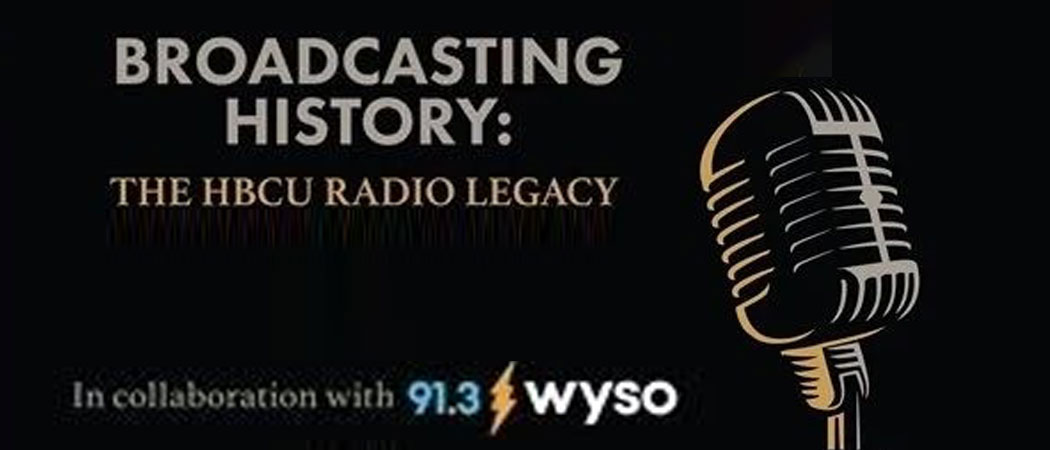Radio/Music News Tues-Thurs-Fri
NPR & WYSO Podcast Series Explores The Legacy Of HBCU Radio
NPR has launched Broadcasting History: The HBCU Radio Legacy, a new podcast series chronicling the legacy of radio stations at Historically Black Colleges and Universities.
The series is produced in collaboration with MIAMI VALLEY PUBLIC MEDIA’s WYSO (91.3)/DAYTON, OH, and is part of the HBCU RADIO PRESERVATION PROJECT, supported by a $5 million grant from the MELLON FOUNDATION.
The debut episode explores how HBCU radio stations emerged as platforms for Black voices during segregation and continue today to serve as training grounds, cultural archives, and community lifelines. Stations highlighted include HAMPTON UNIVERSITY’s WHOV, FLORIDA A&M UNIVERSITY’s WANM, and TEXAS SOUTHERN UNIVERSITY’s KTSU.
HBCU RADIO PRESERVATION PROJECT Founder JOCELYN ROBINSON said, “In the landscape of American broadcasting history, some of the most significant chapters remain largely untold — among these crucial narratives is the story of radio stations at HBCUs. Episode 1 showcases how these stations emerged as powerful platforms for Black voices, music, and perspectives in an era when mainstream media offered limited representation.”
“This project represents the most comprehensive effort to identify, digitize, and preserve the audio archives of HBCU radio stations nationwide. When we preserve HBCU radio, we ensure future generations understand the richness of Black intellectual and cultural life, the strategies of resistance and community building, and these institutions’ vital role in shaping American media and society. The story of HBCU radio is American history.”
MILES COLLEGE Professor of Mass Communications DR. BALA BAPTISTE commented, “It started with us not being taken seriously, joking and laughing, singing, slapsticking. White people wanted to present Black people as though they need not be taken seriously by any respectable white person.”
The series features archival recordings, oral histories, and on-campus interviews to document the origins, challenges, and evolving role of HBCU radio stations in American media.




